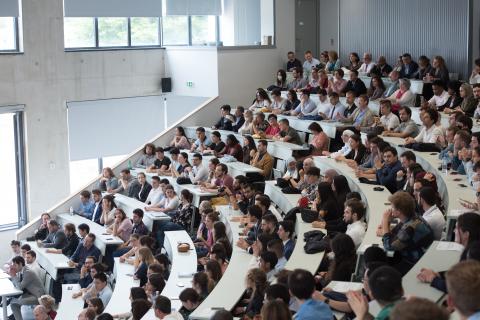
“Universities must not be used for political purposes”
On Thursday 25 April, 73 university presidents signed an opinion piece in the French newspaper, Le Monde, as part of an initiative launched by the association, France Universités, calling for the autonomy of universities to be protected. Camille Galap, the provisional administrator of Université Paris-Saclay, was one of the signatories.
“As spaces for education and teaching, higher education and research institutions are also inseparably spaces for the development and expression of critical thinking. They are bastions of democracy and intend to remain so. Universities must not be used for political purposes,” wrote the university presidents.
The statement comes at a time “when the number of antisemitic acts and remarks is rising, and when not a day goes by where universities are not singled out, accused of laxism or censorship.”
The piece published in Le Monde comes just a few weeks after certain university presidents were criticised for the way in which antisemitic acts were handled on their campuses.
“Debates must take place in conditions which guarantee calm, informed information and the safety of those present. If these conditions cannot be guaranteed, university presidents are within their right to decide whether to cancel or postpone an event. This is always with regret. But violence, in all its forms, has no place on campus or in a lecture hall, in the same way as it has no place in the rest of society,” declared the signatories.
Universities must remain spaces for informed debate to protect freedom
On Friday 19 April 2024, a few days prior to the publication of the opinion piece in Le Monde, the French university alliance, Udice, which is composed of ten research-intensive universities - including Université Paris-Saclay, had already expressed its concern about the situation in a press release. “The polemics caused by the debates being organised in French higher education institutions, particularly those in relation to the current international geopolitical situation, are deeply worrying, both in terms of their virulence and the problems they are causing.” The members of Udice reaffirmed “their determination to tirelessly fight against all forms of hate, racism and antisemitism” in their respective institutions.
“Universities must be spaces for dialogue, respect, collective intelligence and creativity. They must protect individual freedoms, guarantee the freedom of research and opinion, and provide a space for the development of knowledge which is open to all,” declared Udice.
In its press release, Udice stated that, “debate is akin to universities, as it founded on the very essence of the scientific approach to find the necessary conditions for the advancement of knowledge.”
To conclude, “we reaffirm our unwavering commitment in ensuring that the fundamental values of universities prevail: open debate informed by research and knowledge, academic freedom and the freedom of expression. These values are essential in the development of free, open and democratic societies.”
